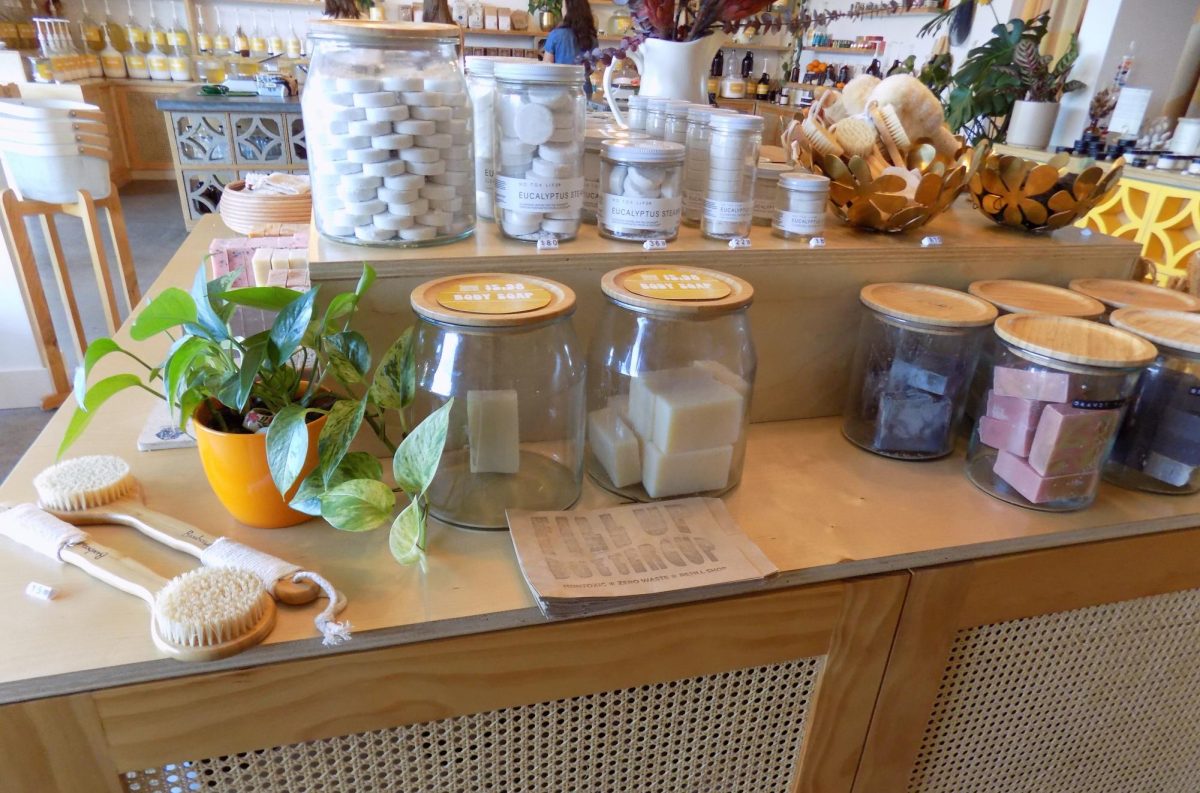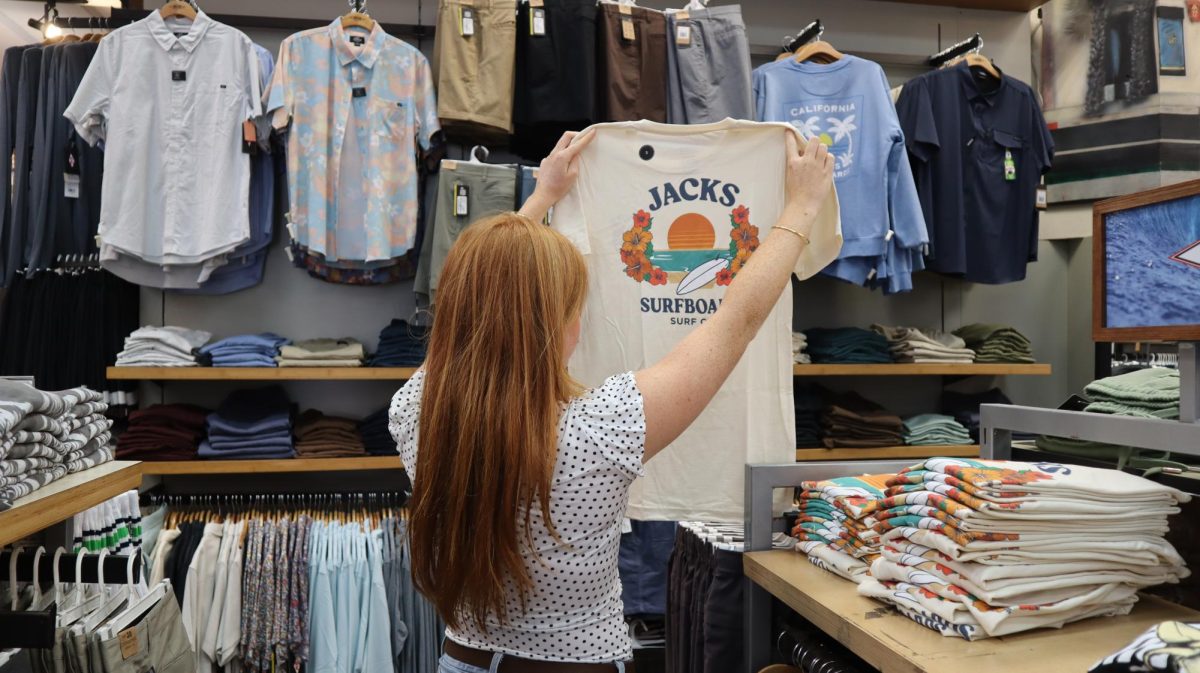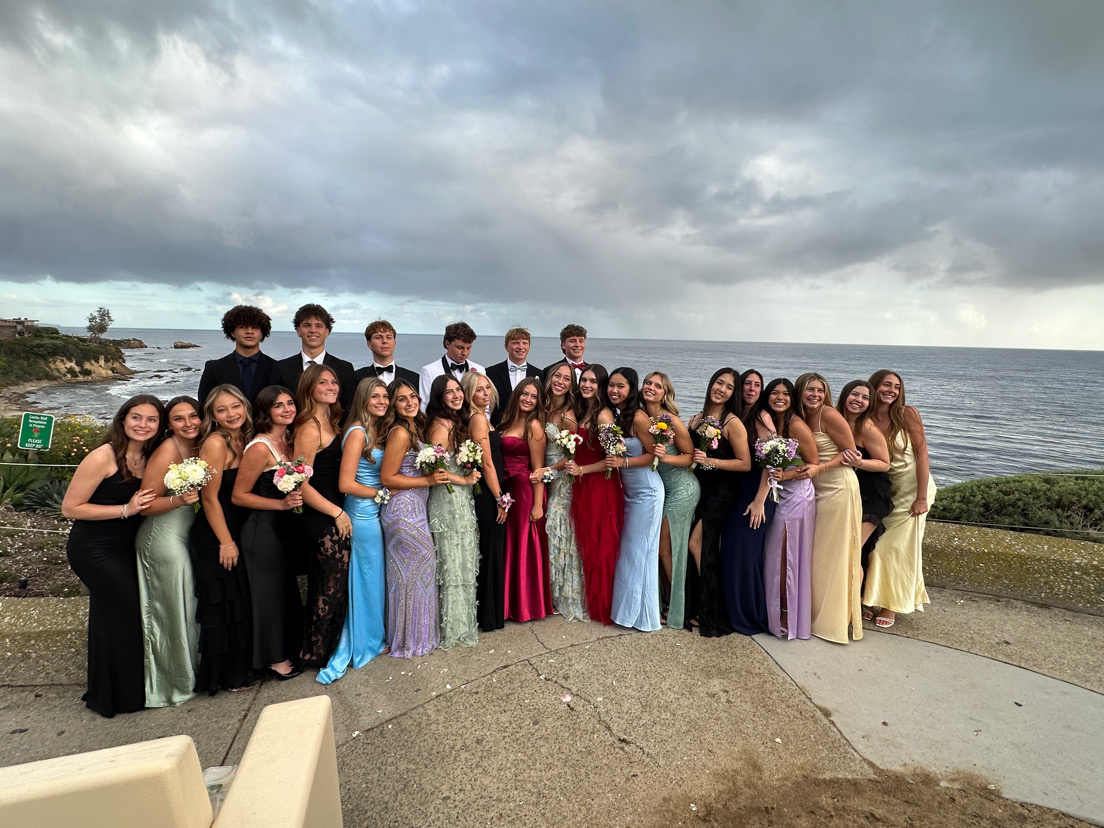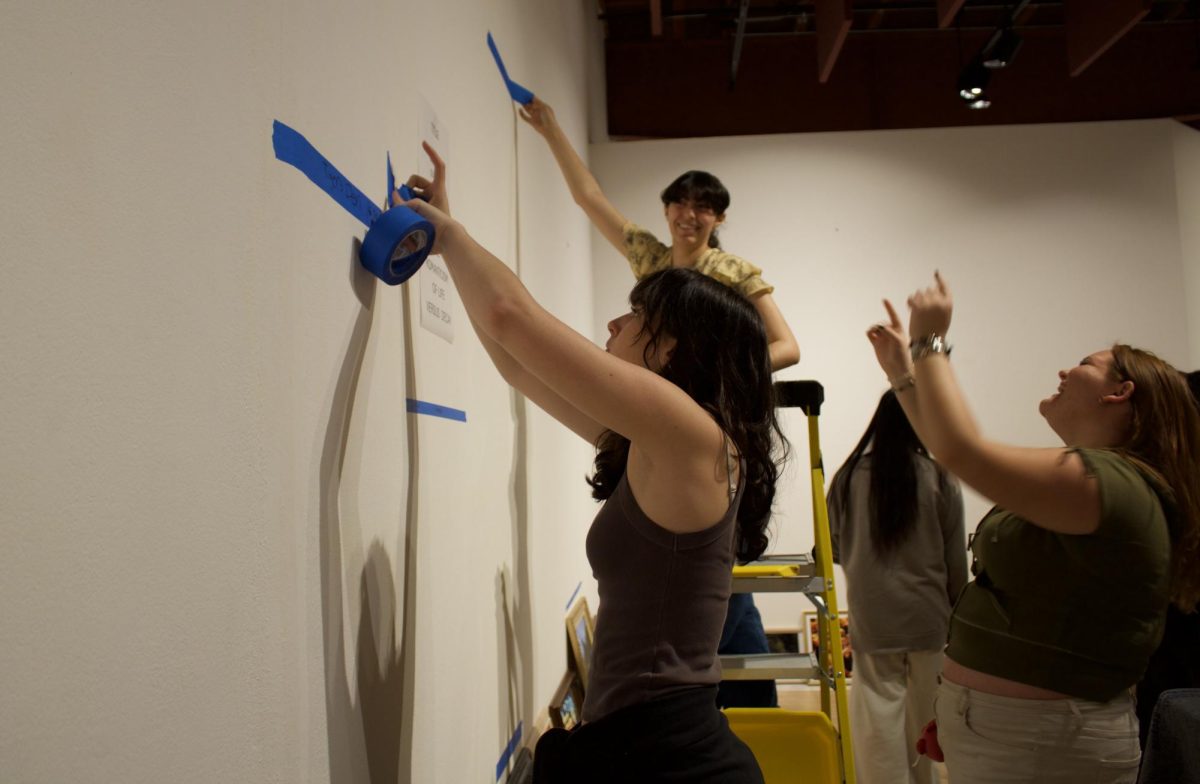Zero-waste stores offer a sustainable method for buying reusable products, groceries, and refilling solutions, encouraging shoppers to think about the footprint they leave on the environment. Products presented in these stores are biodegradable, plastic-free, and sourced to replenish the environment rather than degrade it. Aside from selling eco-friendly goods, zero-waste stores also exhibit relief from the trail of guilt the over-commercialized products at department stores have created. These stores volunteer a resolution to the negative consequences of waste in the environment by preventing the production of waste at its source.

Eco Now, frequently regarded as the first zero-waste store in Orange County, provides an entirely sustainable avenue for its customers through a closed-loop system where materials at every stage are accounted for. This eco-friendly store supplies refill and household products and has adopted the motto “Be Eco Now, Not Eco Later” as a primary importance for how the business operates and its supportive and educational interactions with customers. This store acquires its products from locally sourced businesses to reduce excess packaging.
“We get our products in fifty-five-gallon drums and five-gallon buckets which come from a manufacturer we source locally from Los Angeles County down to San Diego County,” said Tom Pauley, Eco Now’s Manager of Operations in Anaheim.
Eco Now maximizes every material within its stores. Labels are substituted with thin slabs of chalkboard fitted to the edge of wooden display tables and all the furniture is constructed from local and naturally fallen trees. Retired barrels are also repurposed into composting bins and barrels to uphold a closed-loop system where the materials used and distributed are closely monitored. This innovative creativity illustrates the intense commitment Eco Now devotes to its eco-friendly motive.
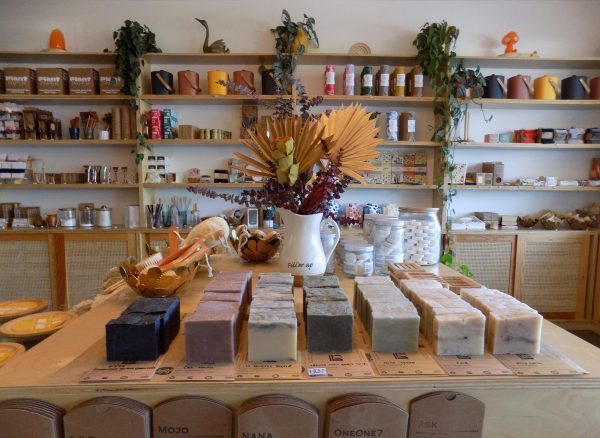
Fill Up Buttercup is another local zero-waste store intent on providing environmentally conscious products to consumers and caters to those who desire to actively amend their lifestyles to aid the earth and its ecosystems by decreasing their waste. This local business emphasizes eco-friendly and non-toxic products for shoppers. In addition to being established and run by women like Eco Now, it also sources its products from local businesses.
“We like to work particularly with women who are making soaps and cleaning products in Orange County,” said Kristina Guccione, Fill Up Buttercup’s General Manager in Costa Mesa.
At their Costa Mesa location, part of Fill Up Buttercup’s recipe to be as environmentally efficient as possible lies not only in its non-toxic products or elimination of delivery packaging by sourcing locally, but also in its position next to like-minded businesses. “We choose to open this retail location next to both the Fermentation Farm and the Water Brewery. We chose this because the Water Brewery is a place where you can go and refill your ginormous bottles of water. They have a refill option for your household water,” said Guccione.
“Fermentation Farm is another local Orange County business,” Guccione said, “where they serve gut-healthy food and you can go and refill your eggs or get more sustainable groceries instead of going to another big box store.”
The majority of the products bought in department stores that are not put into landfills can be littered casually, and are currently stationed near the gutters of streets, making their way toward the oceans – 14 million tons of plastic find its way to the oceans each year. Or they can be incinerated to preserve space in landfills which produces carbon monoxide and particulate matter.
The location of Fill Up Buttercup in an environmentally friendly business community compliments its mission for waste reduction, clean products, and education for anyone seeking it. Another opportunity for consumers to take action in preserving the earth’s ecosystems is Ethikli, a zero-waste grocery market, concentrated on sourcing sustainable, ethical, vegan, and cruelty-free produce.
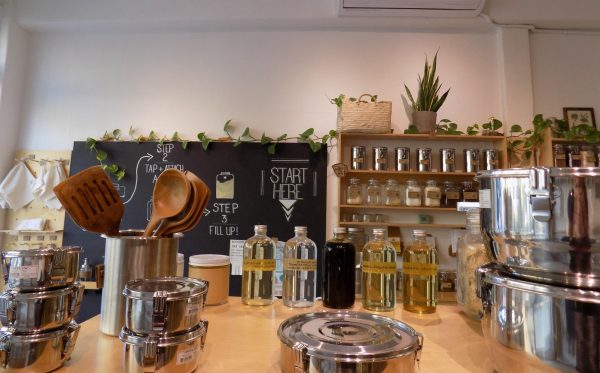
Like Eco Now and Fill Up Buttercup, Ethikli seeks to educate people about the consequences of uninformed consumerism. They model their market on research to find products that fit their morals, advocate for just working conditions, and dispense honest choices to their customers.
“When you come into Ethikli you see a little cardboard tag that says what the products are, the brand, the price, and a QR Code that links to our website so you can find more information,” said Ry Brennan, a Member Owner of Ethikli.
Shoppers can bring their own containers to fill up on food items as they cruise around the store, determining what they need for the coming days.
“You also don’t have the barrier between yourself and the product which makes it so you can actually look at what you’re buying,” said Brennan.
Zero-waste stores like Ethikli put forth a break from the mass amounts of food packaging in regular grocery stores. They also seek to deliver a remedy for the disconnection between over-commercialized products and shoppers who are enticed to buy more than needed.
“Roughly 40% of the plastic waste produced is packaging,” states Brennan. This plastic finds itself fastened around marine animals, broken down by the sun into microplastics and consumed by marine animals and humans, or carried to enormous garbage patches.
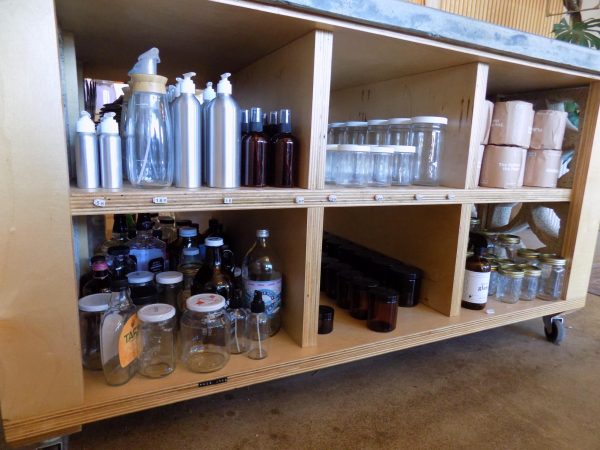
An initial setback in converting to zero-waste stores is how cost-effective this alternative is. Refillable products require customers to pay by the weight of the product by subtracting the mass of their container. To refill products such as cleaning solutions, lotions, or food products like rice and nuts, customers are required to make initial investments in glass containers. Fortunately, these containers can be easily brought from home or found in stores to be borrowed or purchased to fit each customer’s specific needs.
“Eco Now is very cost-effective to big brand retailers because we like to have a concentrated approach to products. There’s no added water to our laundry liquids even though it’s a higher price point per volume, the use of it is more cost-effective per load,” said Pauley.
Although the simplicity of these stores can be daunting at first, being urged to only buy the necessary gradually assists people in compensating for past consumer choices. To ensure that zero-waste stores are cost-efficient long-term, the responsibility customers take on when switching to plastic-free, biodegradable products, and unpacked foods is recognized and met with a supportive environment that guides shoppers in making informed decisions.
“The environment is welcoming,” said Pauley. “Customers go in knowing any question they have could be answered and any requests they need to be less wasteful, they can find that here.”
“We don’t really try to pressure anyone into buying things to buy them,” said Guccione.”When you go to Target, there’s a million hand soaps and you pick it out and sometimes you talk to a sales associate, but the majority of the time you don’t.”
“We like to have conversations with people, we like to ask people what they want to see in the store,” said Brennan.
Because zero-waste stores recognize they are community-driven, they prioritize engaging with those around them to spread their mission.
“We do a lot of free events and a lot of free programs,” said Pauley. “We just did a take-back program with Four Days; we just filled seventy-eight bags worth of fabric waste. We do compost classes at Orange Home Grown Farmers Market [and] farmers markets every week.”
“We have a Pay it Forward board,” said Brennan. “The Pay it Forward board is a place where people can leave a dollar if they find themselves with a little extra cash and then someone a little bit short on cash can take that dollar off the board and use it.”
The zero waste movement has met the nation with substantial magnitude. There are a variety of eco-friendly stores that promote educated and ethical choices in every state to serve the environment.
“We don’t do things that make huge impacts individually,” said Brennan, “but we do make them collectively, and collective action always requires that individuals do something.”
Each zero-waste customer is part of a much larger movement to shop with the environment in mind and give back to the planet we live on.


